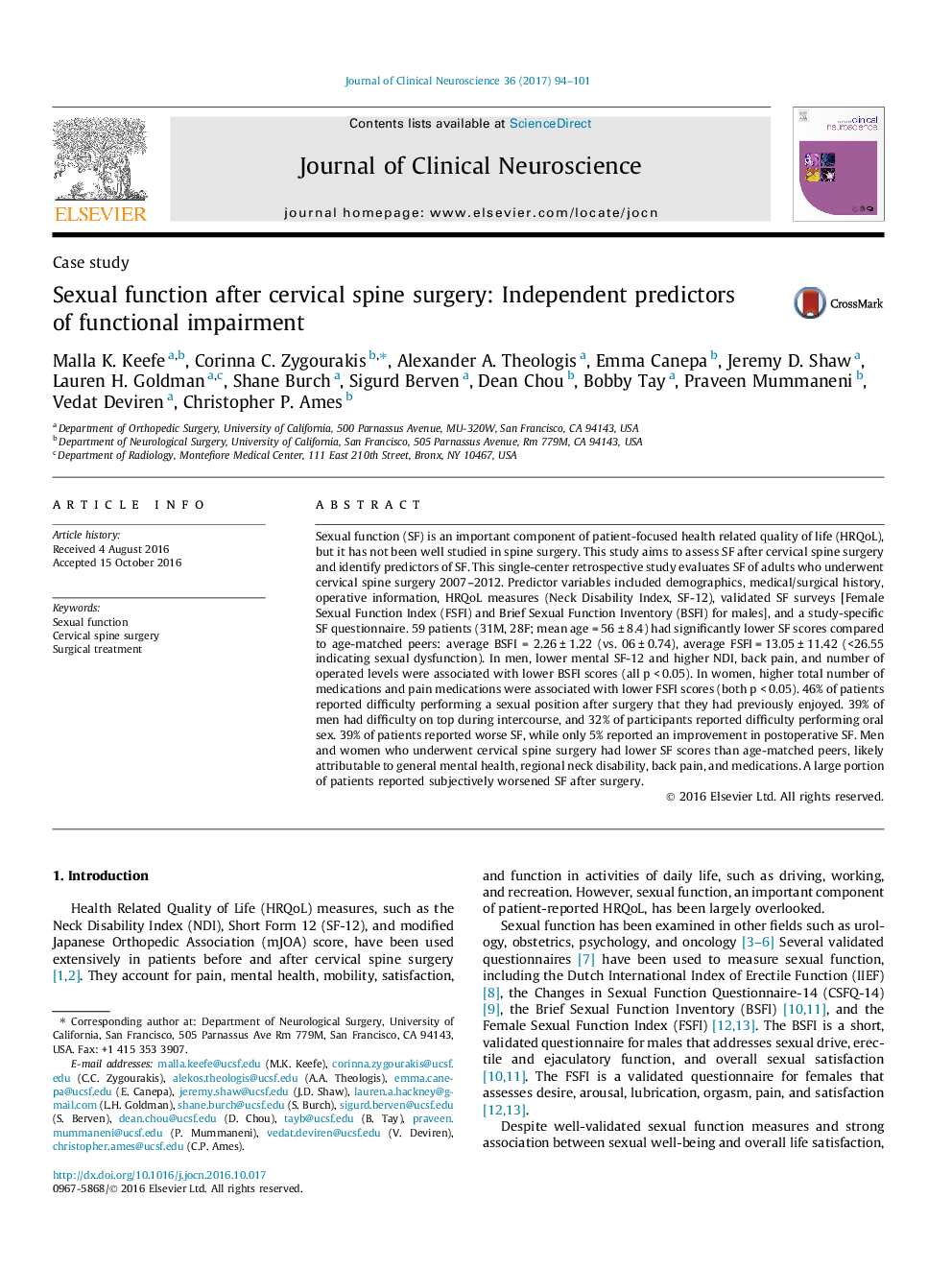| کد مقاله | کد نشریه | سال انتشار | مقاله انگلیسی | نسخه تمام متن |
|---|---|---|---|---|
| 5629831 | 1580280 | 2017 | 8 صفحه PDF | دانلود رایگان |
- Lower sexual function after cervical spine surgery compared with age-matched peers.
- Patient-, more than surgery-specific factors, correlate with sexual function.
- 39% of patients report worsened sexual function after cervical spine surgery.
- Only 5% of patients report improved sexual function after cervical spine surgery.
Sexual function (SF) is an important component of patient-focused health related quality of life (HRQoL), but it has not been well studied in spine surgery. This study aims to assess SF after cervical spine surgery and identify predictors of SF. This single-center retrospective study evaluates SF of adults who underwent cervical spine surgery 2007-2012. Predictor variables included demographics, medical/surgical history, operative information, HRQoL measures (Neck Disability Index, SF-12), validated SF surveys [Female Sexual Function Index (FSFI) and Brief Sexual Function Inventory (BSFI) for males], and a study-specific SF questionnaire. 59 patients (31M, 28F; mean age = 56 ± 8.4) had significantly lower SF scores compared to age-matched peers: average BSFI = 2.26 ± 1.22 (vs. 06 ± 0.74), average FSFI = 13.05 ± 11.42 (<26.55 indicating sexual dysfunction). In men, lower mental SF-12 and higher NDI, back pain, and number of operated levels were associated with lower BSFI scores (all p < 0.05). In women, higher total number of medications and pain medications were associated with lower FSFI scores (both p < 0.05). 46% of patients reported difficulty performing a sexual position after surgery that they had previously enjoyed. 39% of men had difficulty on top during intercourse, and 32% of participants reported difficulty performing oral sex. 39% of patients reported worse SF, while only 5% reported an improvement in postoperative SF. Men and women who underwent cervical spine surgery had lower SF scores than age-matched peers, likely attributable to general mental health, regional neck disability, back pain, and medications. A large portion of patients reported subjectively worsened SF after surgery.
Journal: Journal of Clinical Neuroscience - Volume 36, February 2017, Pages 94-101
